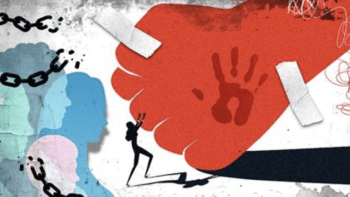Reforms are crucial to ensure women's rights

We are shocked by the abusive and abhorrent language used at the Hefazat-e-Islam rally by some groups as they outright rejected the recommendations made by the Women's Affairs Reform Commission, calling for its immediate abolition. At a time when the people of the country aspire to build a discrimination-free society, such rhetoric—insulting women—is not only condemnable but also contrary to the values and respect for women in Islam. The demand for the abolition of the commission is also unreasonable and disturbing. Some groups might have reservations about certain aspects of the reform proposals that, as they claim, contradict Islamic values and laws. But to reject all the recommendations without any dialogue—and using such unsavoury language—is reprehensible.
Is it possible for a nation to progress by depriving half of its population of their rights? Women's participation in the workplace has made huge contributions to the economy. Our garment industry—which is keeping our economy afloat—is almost entirely dependent on the female workforce. Women have played an instrumental role in major political movements, the most recent being the July-August student-led mass uprising. Their contribution in defeating fascism must be acknowledged and fully honoured.
Apart from the recommendations that generated outrage among some circles, the commission also made many other vital proposals. It has called on the government to adopt and implement the International Labour Organization's Conventions C189 and C190, which aim to safeguard the rights of domestic workers and ensure protection against workplace violence and harassment.
The Women's Affairs Reform Commission was established by the interim government as part of its initiative to promote gender equality and eliminate discrimination against women in society. It has, therefore, put forward several crucial recommendations to empower women and ensure their rights, address the various forms of abuse women face, and suggested multiple protection mechanisms. Apart from the recommendations that generated outrage among some circles, the commission also made many other vital proposals. It has called on the government to adopt and implement the International Labour Organization's Conventions C189 and C190, which aim to safeguard the rights of domestic workers and ensure protection against workplace violence and harassment.
The commission also highlighted the need to strengthen or amend several laws to better support victims of violence, including the Prevention of Domestic Violence Act, 2010 and the Guardians and Wards Act, 1890. It proposed introducing a new law on sexual harassment, based on the 2009 High Court guidelines. It also recommended ensuring six months' paid maternity leave, two weeks' paid paternity leave, and childcare facilities in all sectors. Can there be any doubt that all these recommendations are crucial if women are to contribute meaningfully to social and national progress?
We, therefore, urge the like-minded parties and groups who held the rally on May 3 to examine the proposals realistically and engage in discussions or debates about the recommendations they find problematic. They should also learn from the experiences of other Islamic nations on how they have navigated similar struggles and upheld women's rights. As the commission's recommendations will be presented to political parties through the National Consensus Commission, there will be scope for further debate—which they should utilise to express their views. However, they must remember that the rights to equality, non-discrimination, and protection from violence and abuse cannot be matters of contention, as these rights are guaranteed to every human being.


 For all latest news, follow The Daily Star's Google News channel.
For all latest news, follow The Daily Star's Google News channel. 










Comments